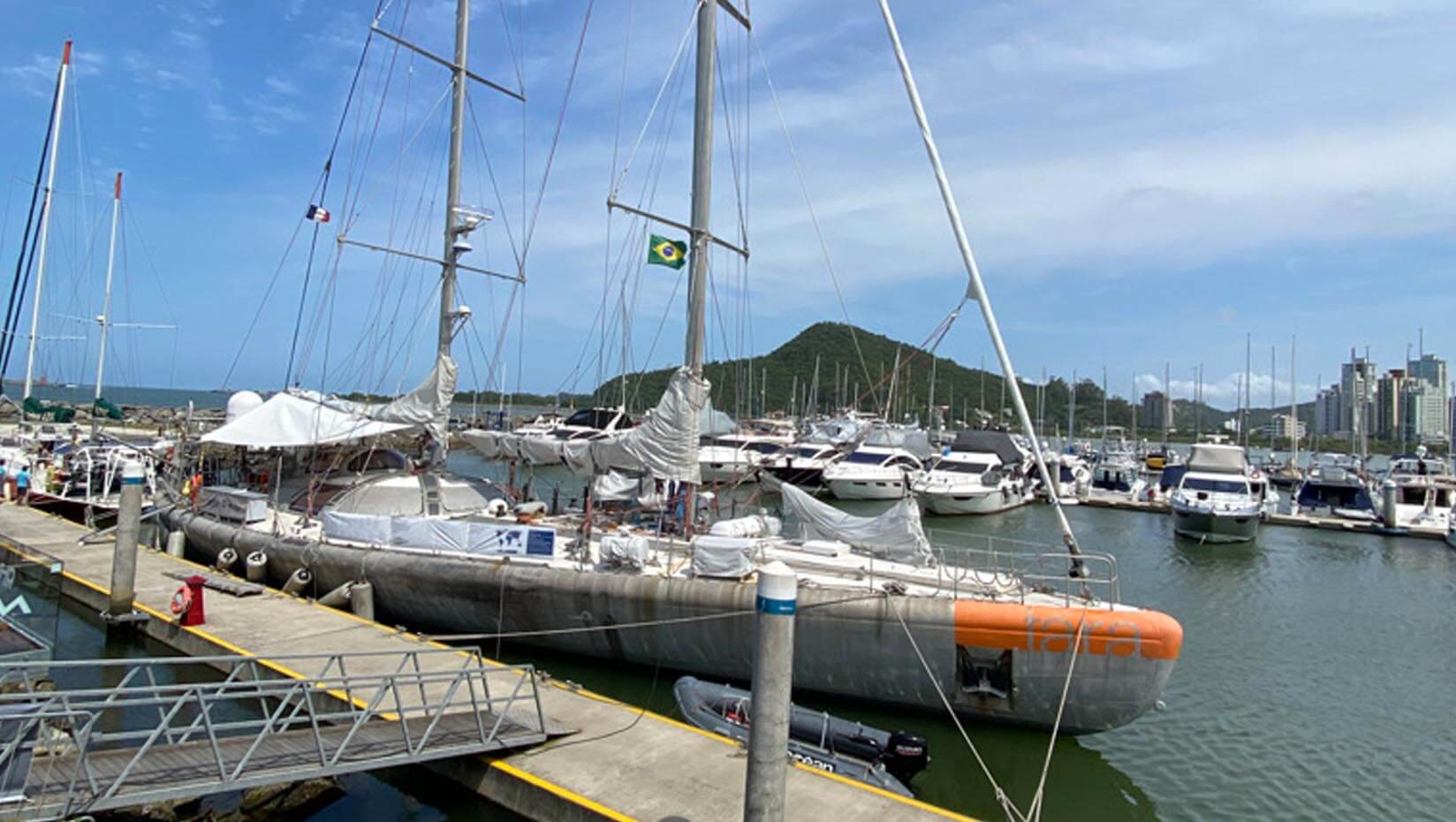
UMaine professors complete another leg onboard Tara research schooner
Lee Karp-Boss and Emmanuel Boss, professors at the University of Maine School of Marine Sciences, completed a month-long research cruise in the western South Atlantic Ocean as part of Tara Ocean Foundation’s Mission Microbiomes project.
Tara, a French nonprofit that conducts ocean expeditions using its titular research schooner, launched the project in December 2020 to learn more about how marine microbiomes, or assemblies of microorganisms in a given ocean environment, function. The organization also aims to understand how climate change and plastic pollution affect marine microbiomes.
Microbiomes make up two-thirds of marine biomass, support an extensive food chain and play important roles in biogeochemical cycles, yet little is known about their inner workings, according to Tara.
Boss and Karp-Boss joined the Tara schooner in early November for part of the two-year, 40,000-mile voyage along the African, South American and Antarctic coasts. Together with fellow researchers from Brazil, they designed and sampled diverse oceanographic regimes in undersampled regions in Brazilian waters.
Funded by a National Aeronautics and Space Administration (NASA) grant, Karp-Boss and Boss also installed the latest generation of ocean instruments on the research vessel to study plankton, tiny unicellular organisms that are the base of the aquatic food chain, and their associated optical properties.
The new instruments include two sensors recently developed at Sequoia Scientific Inc. by, among others, Wayne Slade and Thomas Leeuw, two former students with the UMaine School of Marine Sciences, to measure hyper-spectral backscattering and polarized angular scattering. These instruments provide information about the size and composition of oceanic particles, link it to Ocean Color remote sensing — an area of interest for NASA — and offer a unique view of the organisms comprising the plankton. The UMaine researchers also installed a plankton imaging sensor called an Imaging Flow Cytobot, which allows scientists to detect changes in plankton community composition “on the flight.”
In addition to conducting research, Boss and Karp-Boss participated in several outreach activities in multiple Brazilian towns, including Rio de Janeiro, Santos and Itajaí, and in Buenos Aires, Argentina, where their leg of the voyage ended. They met with school-aged children and members of the general public who visited the schooner and joined science meetings to develop new collaborations with Brazilian and Argentinian scientists. They also attended a ceremony in Santos, Brazil where town officials signed a law that mandated the inclusion of ocean literacy in public school curricula, the first of its kind worldwide.
Karp-Boss and Boss disembarked from the research vessel in Buenos Aires. Guillaume Bourdin, a Ph.D student with the UMaine School of Marine Sciences, replaced them for the next leg of Mission Microbiomes from Buenos Aires to Ushuaia, Argentina, which will focus on coccolithophore blooms in the Malvinas current. Coccolithophores are algae responsible for massive blooms culminating in geological features such as The White Cliffs of Dover, England. Other current and past UMaine students and affiliates are slated to board the vessel along its trajectory to South Africa and along the African coast back to its home port in Lorient, where it will arrive in October 2022. More information about the voyage can be found on the Tara Ocean Foundation website.
Contact: Marcus Wolf, 207.581.3721; marcus.wolf@maine.edu
